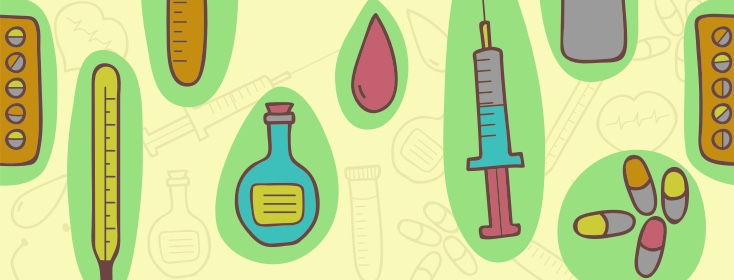Four Tips To Help You Get Better Care From Your Doctor And Pharmacist
“Sorry, but we never received your prescription. You better call your doctor.”
“We sent your prescription refill to your pharmacy a few days ago. Call them back and tell them to re-check their records.”
“If this is a true medical emergency please hang up and dial 9-1-1. If this is a hospital, doctor or pharmacy please press 1. If you want the billing department please press 2. If you want to schedule an appointment please press 3. For all other calls press 0.”
The differences between then and now
As much as technology has simplified our lives it has, at times, also made them more difficult and frustrating.
Growing up our family doctor made house calls. Yes, I’m that old! He came to our house with his big black leather bag filled with all kinds of goodies to help us feel better.
Think of it as the Mary Poppins bag for physicians.
If we needed him we’d call his office, his nurse would answer and BAM! We’d have an appointment that same day.
That was then and this is now. I’ve changed neurologists four times since being diagnosed 28 years ago. Overall that’s not too bad.
One of them had an impossible office filled with staff who were overworked and overwhelmed, so much so that once, when I needed a written prescription to initiate a pharmacy mail order plan, I was forced to mail them a self-addressed stamped envelope to make sure they sent me the darn scrip.
The frustration of trying to address urgent concerns
I can’t blame everything completely on technology, the state of healthcare, or human error, but if you have an urgent matter and need to speak to a doctor, or you need to order/reorder a prescription(s) in a timely fashion, it can be more than frustrating to spend time trying to get what you need. (And I'm not even mentioning issues with insurance companies.)
Here are a few things I’ve learned over the years that have helped me get what I need:
Get to know your pharmacist
Your pharmacist is an important ally. They are always available to discuss any questions or concerns you may have. Open communication with them can optimize care between them and your doctor that, in the end, will benefit you.
Communication
Be open and honest with your physician. I once had a neurologist who never looked at me when I spoke. He typed information onto his laptop, answered phone calls from his staff but never looked up. Once, after examining me, he tried to escort me out of his office before I was finished discussing my list. I spoke up by advocating for my needs. Then I changed doctors.
Be your own advocate
Bring a list of what you want to discuss and don’t leave the office until you are satisfied. If you’re uncomfortable asking questions ask someone to come along with you to help communicate with your doctor.
If you don’t understand something that's been said, ask for it to be repeated or have the doctor write down the instructions or names of medications. This will help you avoid any confusion and lessen the need to phone the doctor’s office. It’s always optimal avoiding the pain of waiting through the entire number system before you can speak to a real, live person.
Cognitive help with apps
There are many available apps to download to your phone that will help remind you of important tasks. Setting up reminders to order medications or schedule doctor appointments will help you avoid any problems with your pharmacy, doctor or your own memory! Here is a list from Business Insider that runs the gamut from free to a few dollars, and here's a list of apps (written by our own Jeri Burtchell) on the best MS apps for iPhone and Android.

Join the conversation